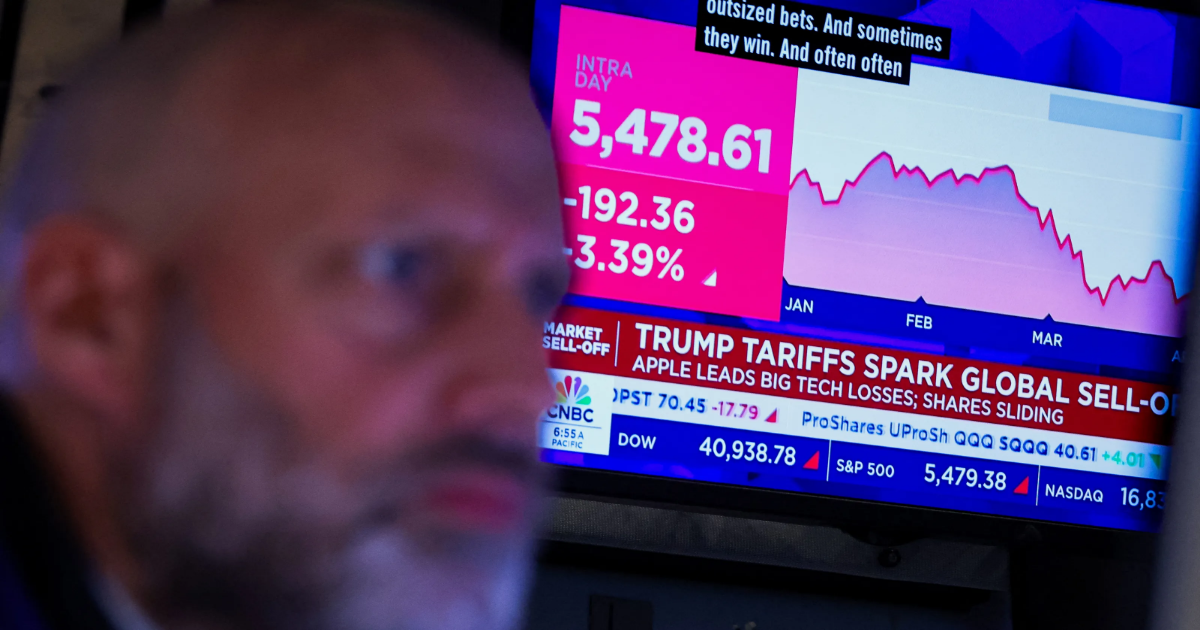U.S. stocks plummeted Thursday after President Donald Trump announced reciprocal tariffs on 185 countries, further raising the risk of a global trade war.
It may not be the best day to look at your 401(k), but is it a good time to invest in the stock market? Experts advise caution. Earlier this week, gold prices soared to another record high as investors fled to safer assets.
Trump’s sweeping tariffs of at least 10% on most countries, and higher on some, prompted a decline in markets around the world. In the U.S., the Dow had dropped nearly 1,300 points, the Nasdaq fell 5%, and the S&P 500 lost 4% sending it into correction territory, as of Thursday afternoon.
Although Trump’s reciprocal tariffs are unprecedented in recent history, the S&P 500 has dropped 10% from its recent high, entering correction territory, 56 times since 1950, according to data compiled by Truist Financial experts.
Of those 56 times, stocks were higher a year later about 88% of the time, the data revealed while noting that past performance does not guarantee future results.
Need a break? Play the USA TODAY Daily Crossword Puzzle.
“The probability for investors — at least history is with you as a starting point but if history was all you needed, the richest people would be librarians as Warren Buffet used to say,” said Keith Lerner, chief market strategist and co-CIO for Truist.
In the seven times stocks had declined, six coincided with a recession – showing markets are influenced by the economy’s overall trajectory, which is hard to predict right now.
“Our base case at this point is still not recession but we would say that recession risk is really much higher than it had been for some time now,” Lerner added.
More: The impact of tariffs is coming. Which households will Trump’s new plan cost most?
What is the ‘buy the dip’ strategy?
When stocks decline in price, some traders see it as an opportunity to “buy the dip.” It’s a highly debated investment strategy that comes with risk and some experts advise dollar-cost averaging instead.
Whether buying the dip works out in the end depends on several factors. If the market is generally rising over time, and you buy a high-quality stock you believe will bounce back, it might be a successful strategy. In March, MarketWatch laid out specific criteria that can help determine if a dip is buyable.
However, if stocks continue to fall leading to a bear market and the country heads towards a recession, investing early in an economic downturn can lead to further losses.
Lerner said right now is a time for investors to prioritize their long-term targets, not to play offense.
Volatility is often measured by the Chicago Board Options Exchange’s CBOE Volatility Index. Experts currently expect volatility in the markets to persist, as few expect this week to mark the end of Trump’s use of tariffs and tariff threats.
“There is scope for the VIX to increase further if recession fears escalate and we see stock correlations surge,” said Mandy Xu, head of derivatives market intelligence at Cboe Global Markets, in a statement to USA TODAY.
Reach Rachel Barber at [email protected] and follow her on X @rachelbarber_
